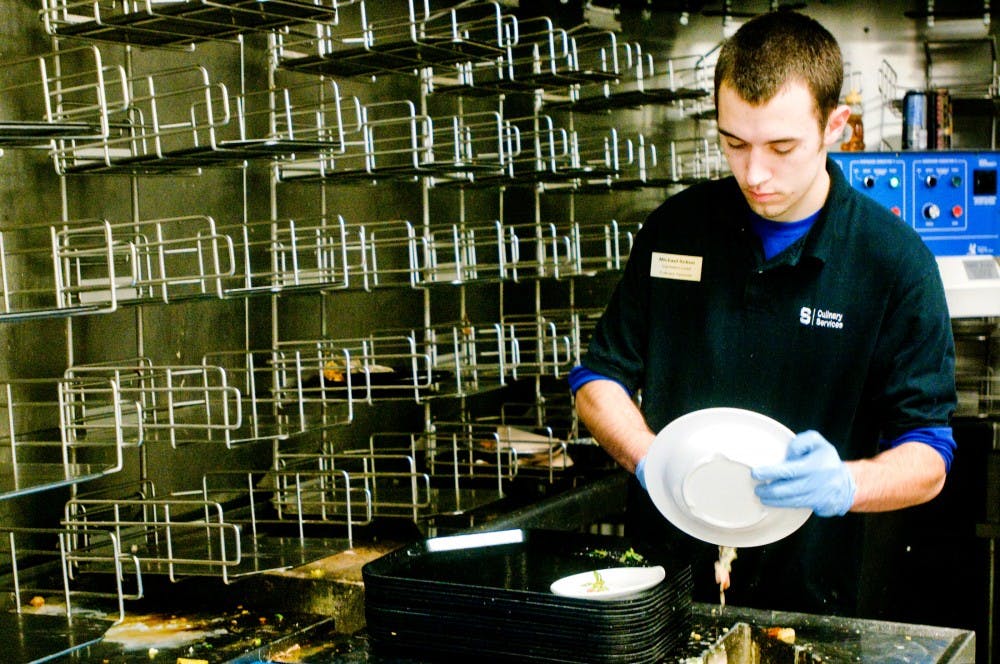When education freshman Kristen Bock works her shift in the dishroom of Holden Hall cafeteria, she said it’s not uncommon for her to see pieces of food left lying on trays.
“People will leave entire slices of pizza, (or) fruit not even touched and sometimes whole sandwiches,” Bock said. “It’s kind of ridiculous.”
In an effort to combat this problem, MSU Culinary Services is in the process of conducting a food waste study campaign in each of the campus cafeterias this semester.
“We want to teach responsibility and make sure we’re using each dollar wisely (in the cafeterias),” said Carla Iansiti, MSU Culinary Services sustainablilty officer.
The study already has taken place in the cafeterias in Yakeley, Landon, Shaw, Holmes and Holden halls, as well as the Gallery at Snyder and Phillips halls. The study has yet to examine the food waste accumulated in Case, Hubbard and Brody halls, she said.
Through the study, Iansiti said the team has found an average of 3.376 ounces per person — about the size of a bag of chips — of wasted edible food that could have been eaten, but was instead thrown away. She said this average is a “smidge” lower than last year.
Iansiti said the study also found cafeteria workers have a tendency to try to please everyone, which sometimes leads to giving too large of portions. MSU Culinary Services is working to open up lines of communication between the guest and the server to help decrease the amount of wasted food, she said.
“We have changed our style of cooking,” Iansiti said. “The cooks now prepare the food right in front of you instead of keeping backup pans that get cold and dry out.”
MSU also is playing with the concept of trayless dining, Iansiti said, which can help decrease food waste. Yakeley Hall cafeteria is the only trayless cafeteria on campus, but Shaw Hall cafeteria also will be trayless after its renovation is complete later this year, Iansiti said.
Jennifer Battle, assistant director for the Office of Campus Sustainability, said she thinks many students on campus are excited about the campaign.
“Generally, people are doing really well with eliminating food waste,” Battle said. “I was really encouraged by the students who took only what they needed to eat and then were excited that they were a zero-food-waste consumer.”
Both Battle and Iansiti advised students to think with their stomachs and not their eyes in the cafeterias.
Support student media!
Please consider donating to The State News and help fund the future of journalism.
Discussion
Share and discuss “Cafeterias conduct study to reduce waste” on social media.


